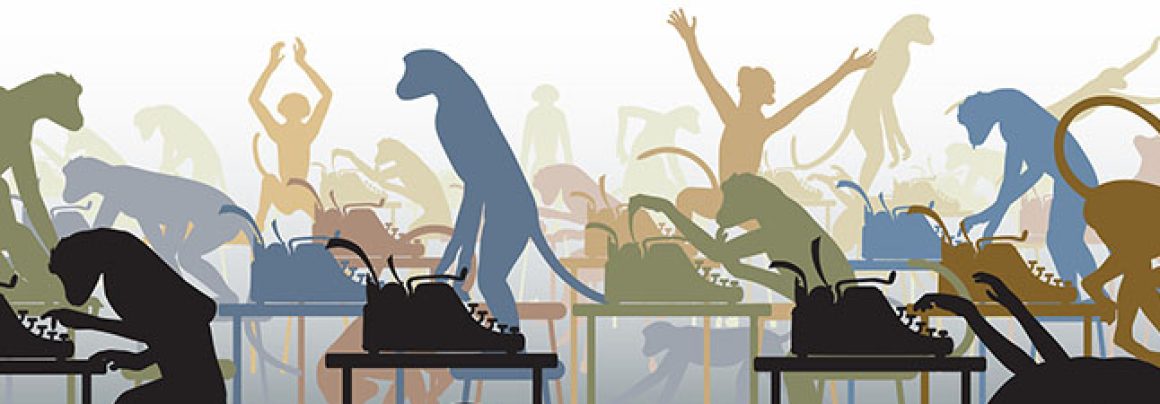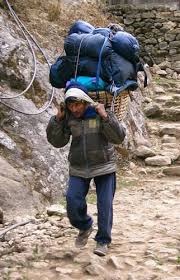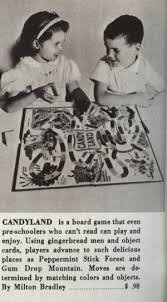In an experiment at MIT mice fed yogurt as compared to junk food developed luxuriantly thicker fur and bigger testicles that they projected outwards, giving them an air of “mouse swagger.”
Scientific American
It’s Friday night and, like every other mouse in the lab, I’m cruisin’ the scene–TGIF and all that. I reached sexual maturity when I was 35 days old, but my life expectancy is only two years even in the climate-controlled comfort of the lab, so I’ve got to grab all the gusto I can get while the gettin’s good.
I can’t believe what some of these guys eat. High-fat, low-fiber crap, the Andy Capp Pub Fries of the rodent world. They’ve all got premature pot bellies and–I hoff ta loff as they say here in Boston–chin scrotums. Gross.
Not me, I’ve been hooked on yogurt since that fateful day at The Bandersnatch, the snack bar at the University of Chicago where I was born. I was crawling around under the grill, scarfing down a french fry here, a hamburger roll there, when I spied a little puddle of something that looked like pudding. I licked it up and–it was like I’d seen the face of the godhead or something. My blood sugar shot up, and I felt like I’d passed through the doors of nutrition perception. This, I said to myself, is the stuff I’ll be eating for the rest of my days, and my self said “If you know what’s good for you” right back at me. I had entered a realm of higher consciousness, and suddenly all the hamburger crumblies and onion rings seemed like so much awful offal.
I started to read more about the magical properties of this nectar of the gods called yogurt. I was given a mystery novel written by common-law husband and wife team Maj Sjowall and Per Wahloo and discovered that Martin Beck, their fictional Swedish police detective, subsisted on yogurt, coffee and beer–just like me! I adopted his cool, detached, self-deprecatory manner as my own. Why not? I–like he–had the biggest pair of balls around. I was comfortable in my luxuriously fur-covered skin. I had–there’s no other way to put it–mouse swagger.
Maj Sjowall and Per Wahloo
When I arrived in Cambridge I have to say I was not impressed with the supposedly world-class mice I’d be working with. They seemed a bit effete, distracted, almost as if they weren’t eating right. Me? I went through yogurt by the ton.
First Dannon fruit-on-the-bottom, then Yoplait in the plastic cones that drive skunks wild. Then–incroyable–coffee-flavored yogurt! And more recently, all-natural maple-flavored yogurt from hip, ironic cows in Vermont. They’re spoiled up there, what with all the Manhattanites coming up for the weekend, leaving New Yorker cartoons lying around.
I belly up to the bar and try to block out the puerile jabbering of the hyperactive junk-food addicts who surround me. I look at the crap they’re shoving down their pellet-holes–Jesus H. Christ. Fatty crap you wouldn’t feed to a Goth gamester, or a couch potato sports fan who stays up all night because he can’t pry himself away from Australian rules football.
“What’ll ya have?” Smitty the graduate student assistant asks.
“The usual.”
“One strawberry-banana smoothie with wheat germ, coming right up!”
I pull myself up to my full ten centimeters in length, and the crowd of slumping schlumps parts like the Red Sea.
“Who’s the health nut?” one of them says snidely out of the side of his mouth. I could pop him one but hey–I’m above that sort of stereotypical lab rat behavior. I’m cool, calm, collected, and have a set of cojones that make his look like shriveled-up capers from the Museum of Forgotten Groceries.
I care not what such an inconsequential being thinks of me. I’ll show him a thing or two once the action gets hot and heavy and . . .
And then she appeared–as if in a dream. The most gorgeous specimen of Mus musculus I’d ever seen in my life. And she’s making eyes at me!
The other males start to preen and strut their little courtship dance, but it’s no use. Our eyes lock as our lips and then (I hope) our groins will a little later on.
“Hel-lo there,” I say, giving her the look–one eyebrow raised, the other slanting downwards–that the notorious faculty lothario Thorstein Veblen used to call the “physiognomy of astuteness.” She’s cute, I’m astute–Q.E.D.
“Hi,” she says, batting her shy little eyelashes. “I couldn’t help but notice your thick luxurious fur,” she says. Hey–we’re mice, not Nobel Prize winners.
Veblen: “Oh what a cad am I of the academy.”
“Thanks. You look like you keep yourself in great shape,” I say, the tried-and-true Esperanto version of “I want to jump your bones.”
“I eat right–nothing but yogurt for me,” she says. “What’s that you’re drinking?”
“I stick to the traditional cocktails–a yogurt smoothie. Can I . . . buy you one?”
“Sure,” she says. Smitty belies his scientific demeanor with an extra-sensory perception of the situation and has a drink for the lady in front of her before you can say “National Science Foundation.”
“So . . . do you live around here?” I ask. Always good to get the lay of the land right away.
“Over in Kendall Square–the Nerd Capital of New England,” she replies.
We exchange knowing glances–I put hers away in case she needs it later–and we make goo-goo eyes at each other as we sip our drinks, the way swingin’ teens used to do in malt shoppes of the 50′s.
When I reach the bottom of my drink I hesitate, knowing my next step involves a significant degree of risk. I size her up; she’s everything a guy could want in a mouse, so fresh and un-experimented upon. I decide to go for it–and make a gigantic slurping sound as I suck the dregs of my smoothie up my straw!
She’s taken aback for a second, so I pounce.
“You know what that sound means in Texas?” I ask.
“No–what?”
“There ain’t no more!”
She laughs, and I know I’ve got her eating out my hand. “C’mon–let’s blow this pop stand!” I say as I grab her hand and lift her up in my arms where she belongs, like I’m Joe Cocker and she’s Jennifer Warnes or something.
We start to leave but suddenly I’m surrounded by the round-shouldered dweebs who’ve been eyeing me jealously while I put the moves on my Minnie.
“Where you think you’re going?” one of them says.
“Is that a slide rule, or are you just glad to see me?” my new-found girlfriend snaps at him. She’s got spunk.
“Why don’t you dump Mr. Fitness here and give one of us a chance?” another says.
“I wouldn’t fuck you for practice,” she says sharply. Must have been a stand-up comic before she settled down to a life of science.
“C’mon–what’s he got that we haven’t got?” a third interjects, and she looks lasciviously down at my crotch where the healthiest set of testicles this side of the mule barn at the Missouri State Fair are on display.
“This may be America,” she says, “but a girl still craves the crown jewels.”
Available in Kindle format on amazon.com as part of the collection “Wild Animals of Nature!”













































